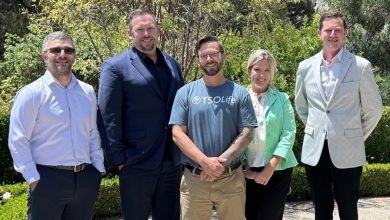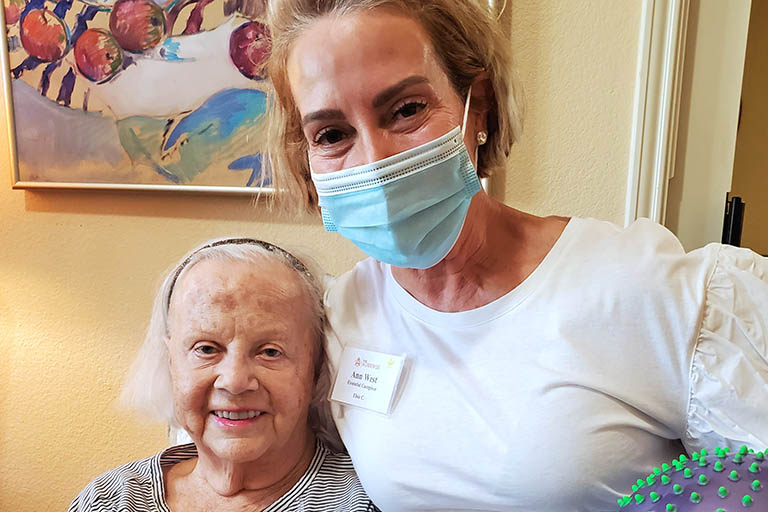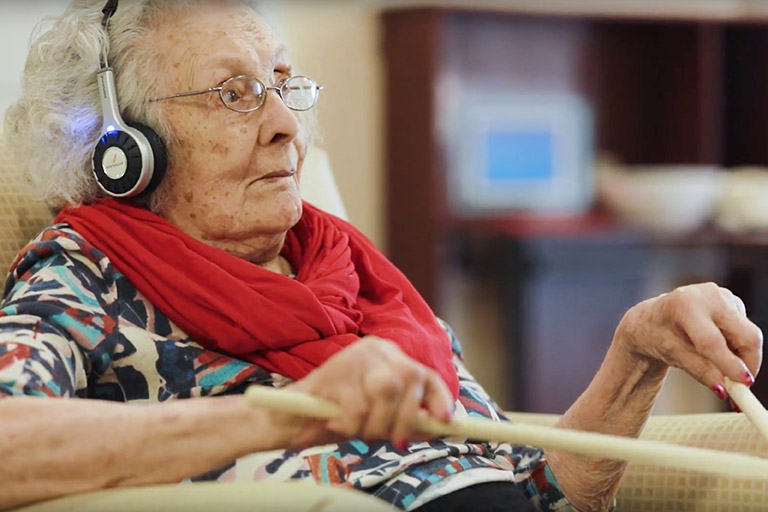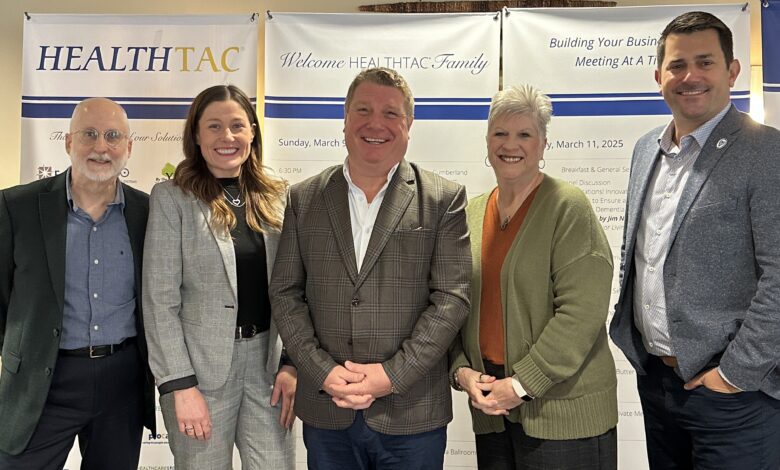
HEALTHTAC East 2025 Panel: Company Culture: How it Impacts Staffing and Reduces the Need for Agency, Part 2
By Jim Nelson | May 1, 2025
AMELIA ISLAND, FL — At the recent HEALTHTAC/Senior Living News annual east coast event we had four senior living execs on a panel discussing company culture and how it can improve staff retention and thereby reduce the need for agency.
The panelists were Northbridge Advisory Services Managing Director Greg Anderson; Danielle Parker, the COO at GenCare Lifestyle; Kathy Rainwater-Roe; the director of community partnerships at Phoenix Senior Living; and Austin Steele, the chief strategy officer at Journey.
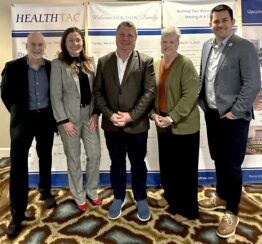
In part 1 of this article, we learned about how quarterly reviews and incremental raises can be ways to help foster a winning company culture. GenCare Lifestyle has implemented quarterly reviews and incremental raises, so I asked Parker how that is being received.
“It’s been a tremendous help,” Parker said. “The exit interviews from team members recently separated was suggesting that they were leaving because of lack of training or lack of resources to do their job. We were already budgeting between three percent and five percent increases annually for employees, so what we’ve done is broken it up — it’s about 1.25 percent every 90 days for the hourly team members.
“Those appraisals [are] four questions,” she noted. “It was very important that our department heads didn’t feel burdened because they were already dealing with staffing challenges and crises. Reviews can be hard and time consuming, so the questions are easy. To qualify for their increase, they only have to meet two requirements: work with us for 90 days and they are not under any progressive disciplinary action. One of the benefits is it’s a very collaborative experience. They meet with their direct supervisor, and they goal set for the next performance review [in] 90 days. We’ve changed the whole dynamic; progressive [discipline] has now become a coaching tool, so we’ve changed that culture as well, and people are truly growing and learning and becoming better professionals and thanking us for that experience and opportunity as well.”
“I think that’s key too, that we change the verbiage from disciplinary to the coaching,” Rainwater-Roe chimed in. “We’re trying to create that positive work environment, so we need to take those negative terms out of there and turn it more into a positive thing.”
I took the opportunity to follow up with Kathy, and ask what else Phoenix Senior Living does to foster a positive workplace.
“You’ve got to have that open communication with your frontline staff, let them feel that they’re a part of the decisions that are being made,” Rainwater-Roe acknowledged. “You want to have a clean and safe work environment and show genuine acts of appreciation. When I was an executive director, I used to stand at the door when second shift would come in; they thought it was hilarious, but I’d stand at the door and give them a high five and say, ‘Welcome to work. Thank you for being here.’ I genuinely meant it; I wanted them to know that they were valued. And every day I would do my rounds, and I’d shake every resident’s hand and say, ‘Have a good day.’ But I’d also go around to every one of my staff members and tell them, ‘Thank you for being here.’
“Get to know your staff, ask about their family,” she also said. “If you know certain things are going on in their life, ask about it. Let them know that you really care. Get their input if there’s a company goal. If you guys are down in census by six residents, if you’ve got a big push, get your team involved. Let them know when tours are coming in; say, ‘I really need you guys to be present.’
“And then,” Rainwater-Roe continued, “with exit interviews, find out what happened. You know something’s wrong, find a way to fix it. And the last thing is break rooms; I know that sounds very silly, but you want to create an environment where your staff knows this is where we can go, a place just for us. They can decompress and just chill for a little bit and it’s a nice place for them.”
It was back to Northbridge’s Anderson for a little elaboration on how to make sure the communities are upping their culture the same way the home office wants them to.
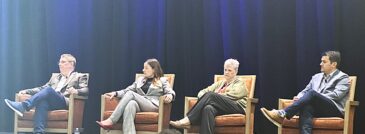
“It really begins with how you are incorporating your executive directors and your leadership team and your home office equally in initiative development for culture,” he commented. “I’ve been an executive director, and when the home office would say, ‘This is the way it’s going to be,’ you’re there in your own community, saying, ‘How the heck am I going to do that?’ And therefore, it doesn’t happen. So, how do you involve them? You get them included. You also need to focus on metrics. How are you going to track it? Exit interviews. We’re really big on surveys and really lean in on making sure that what you’re saying is what you’re doing, because it’s easy to throw a mission and core values out there, and then everyone just gets busy and does something else. So, collaboration, rolling out initiatives, but then track it and really monitor how you’re doing.”
Steele then explained how cell phones play into the Journey Advantage.
“Anybody who works for us, full-time, care team member, we are providing them a cell phone with unlimited talk, text, and data, and we are handling the cost for them,” he said. “We have people that are super excited about this; this is a cost that they don’t have to pay for anymore, or they’re also looking at, ‘I can gift this to a kid, a spouse, etc.’ It’s a way that we can load a couple of apps on there to be able to communicate with them. It’s not big brotherish; we have no idea what sites they’re on. We don’t have time for that. We’ve rolled it out to about half of our buildings, and it’s going over exceptionally well.”
Steele wrapped up the panel by explaining the out-of-the-box thing that Journey does for its team members with good attendance.
“Our front line care team members, our nurses, CNAs,” he began, “we are incentivizing them to show up to work. We know that the second call-offs start happening the team shifts their focus, and now they’re worried about the schedule. So, we have incentivized people: If they show up during their scheduled shifts, full-time care team members, we are giving them an attendance bonus — we pay them $5 an hour more if they show up when they’re supposed to be here. So, it’s significant. If they’re late or if they don’t show up; they don’t get [the extra pay]. It’s very cut and dry. There’s no wiggle room in there, but shockingly, people start to show up.”

